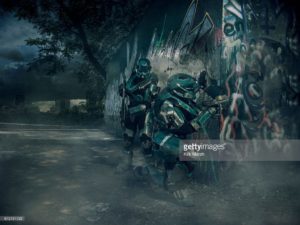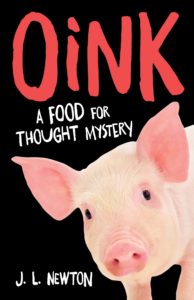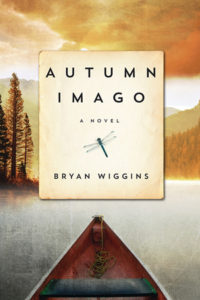Photo by Marks Polakovs. All rights reserved.
Welcome, Anon du jour, welcome to The Kill Zone! Thank you for submitting Some Kind of Dead, your masterpiece in progress (and I mean that sincerely) to our First Page Critique:
Some Kind of Dead
By the time the dark blue BMW made a second pass past the bar, Andy Weber pegged them for amateurs. Unlocking the door he had just secured, he ducked back into the bar, keyed the alarm pad and then grabbed the cut-down Remington 870 that Gus kept below the register. Cops called it a “street sweeper” for good reason. Checking through the window for the car, he slipped outside and stood in the dark shadow of the doorway. As the sedan slowly rounded the corner at the far end of the block to make a third pass, Andy was ready for them.
The car drew even with the front door. Two mini-mag machine pistols began to emerge from the open back window on the driver’s side and Andy started unloading on the slowly moving car. First, the driver, to immobilize the vehicle, then the two passengers in the rear…one, two, three, and it was over just like that. The dead driver’s foot had jammed the accelerator. The Beemer, accelerating rapidly, entered the intersection against the light, right in the path of a fast moving gasoline tanker. The truck driver tried to avoid the car but he overcorrected and jackknifed the trailer, slamming into the BMW.” The tanker wasn’t as lucky. After hitting the car, it slid sideways through the intersection. The driver could see what was coming and jumped out, rolling to a stop. The tanker turned over, exploding in a ball of flame, engulfing three cars in the fireball. The driver stood, dazed, in the middle of the intersection.
Andy, satisfied that no one else was coming for him, picked up the ejected shells and returned the street sweeper to its rightful place under the bar. Resetting the alarm, he locked up and started off down the street, away from the carnage he just created. Tomorrow he would have to remember to clean the shotgun and pay Gus for the three shells he used. “Amateurs”, he whispered to himself as he walked down the street.
This is simply terrific, Anon. I am predisposed to to love this anyway,, given that it sits solidly in my favorite literary genre — crime noir — but even after looking at it as critically as I could I found very, very little here with which to quibble. You draw the reader right in, hold their interest, create the proper dark mood and have the requisite mayhem and explosion which readers these days tend to expect right from the…well, from the first page. It reminds me of the paperback crime novels that I cut my reading teeth on back in the 1950s and which I read to this day. That said, I have a few things to mention in the hopes of making a terrific opening page a perfect one:
1) First paragraph:
— Let’s get everything parallel in the first sentence. The car goes around the block and Andy pegs “them” for amateurs. Who is them? Let’s change that to “By the time the dark blue BMW made a second pass past the bar, Andy Weber pegged its occupants for amateurs.”
— Wow, those guys really were amateurs. I know grade school cub scouts who could pull off a better ambush than they attempted. I’m puzzled as to why they didn’t shoot Andy on the second pass. I assume they didn’t see him, even though he saw them. How about showing that to your readers like so (there are many different ways to this): “By the time the dark blue BMW made a second pass past the bar, Andy Weber pegged its occupants (see above) for amateurs.Gus’s doorway was the perfect place for observing without being observed. Andy had been able to clock the car’s occupants as they played two games of urban ring-around-the-rosy without their having a clue that he was watching. Unlocking the door…”
2) Second paragraph:
— Let’s break up that compound sentence. Like so: “Two mini-mag machine pistols began to emerge from the open back window on the driver’s side. Andy stepped quickly out of the shadows, unloading on the slowly moving car.”
— …“ against the light, right in the path…” How about “…against the light, into the path…” instead?
— “The driver could see what was coming and jumped out, rolling to a stop.” I generally think of cars, rather than people, rolling to a stop (or when I’m driving, rolling through a stop). I’d suggest this: “The driver could see what was coming and jumped out. He hit the ground and rolled until he ran out of blacktop.” Or something like that. There are a few different ways to write it.
3) Third paragraph:
Andy, satisfied that no one else was coming for him, picked up the ejected shells and returned the street sweeper to its rightful place under the bar. Resetting the alarm, he locked up and started off down the street, away from the carnage he just created. Tomorrow he would have to remember to clean the shotgun and pay Gus for the three shells he used. “Amateurs”, he whispered to himself as he walked down the street.
You use the word “street” three times in the same short paragraph. Let’s eliminated the first and third ones. For the first, call the street sweeper a shotgun; as for the third: when Andy whispers “Amateurs” we already know he’s walking down the street because you just told us. You could end that paragraph with “Amateurs,” he whispered.” (see below) and it would be just fine.
4) There are also a couple of typos:
Second paragraph: “ The car rolled twice, and came to rest on what was left of its tires.” I suggest striking the comma in the sentence “ between “twice” and “and.”
Third paragraph, last sentence: Let’s stick that comma after “Amateurs” after the ‘s’ and before the final quotation mark.
Thank you again, Anon, for submitting this first page of SOME KIND OF DEAD. I sincerely cannot wait to see what follows. I will now sit back, attempt to stay uncharacteristically quiet, and let our TKZ audience hold forth.









